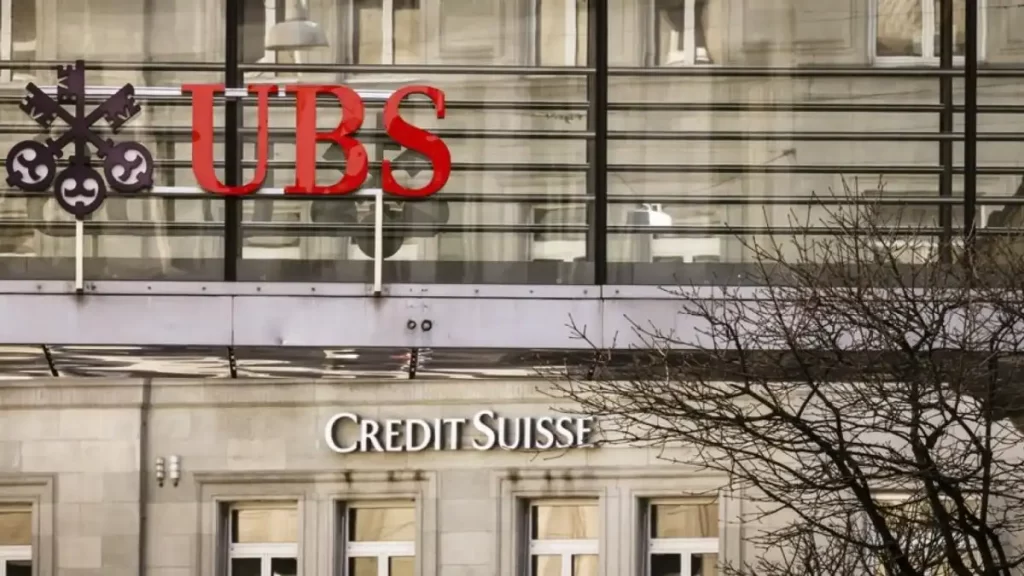In a move that has shaken the global financial markets, UBS has agreed to purchase its domestic rival, Credit Suisse, for 3 billion Swiss francs ($3.25 billion). Despite the bold proclamations from Swiss authorities and central banks about a return to stability, the deal does not appear to have laid to rest concerns about systemic risks to global markets.
Why Credit Suisse is in troubles?
Credit Suisse has had a tumultuous history in recent years, marked by heavy losses and costly scandals. The most recent share price plunge began with the collapse of U.S.-based Silicon Valley Bank and Signature Bank, and was compounded when top investor, the Saudi National Bank, said it could not provide any more financial assistance.
The announcement of a loan of up to 50 billion Swiss francs from the Swiss National Bank failed to soothe investor concerns and eventually necessitated the 167-year-old institution’s “emergency rescue” by UBS.
Unraveling the Deutsche Bank Shares Roller Coaster: CDS Blow-Out Impact and Analysis
Dive deep into the recent fluctuations in Deutsche Bank shares following the credit default swaps blow-out and understand the factors behind this volatility.
Credit Suisse Chairman Axel Lehmann acknowledged the difficult situation his bank faced when he told a press conference on Sunday, “The accelerating loss of confidence and the escalation over the last few days have made it clear that Credit Suisse can no longer exist in its current form.”
What is in this deal for UBS?
While UBS CEO, Ralph Hamers, expressed confidence in the deal, describing it as a “rare opportunity,” many market observers are concerned about the potential risks of such a large acquisition. The deal creates a bank with combined assets of $2.1 trillion, making it one of the largest banks in the world.
The move comes at a time when the financial sector is already grappling with the impact of the COVID-19 pandemic, and the market is on edge. Therefore, it is crucial for UBS to take steps to assure stakeholders that the acquisition is a positive development and that the risks associated with it are manageable.
To further calm the markets and investors, the deal will be also supported from various Swiss authorities. Financial regulator FINMA, the Swiss National Bank (SNB), and the Swiss government have all pledged their support to the deal. The SNB will offer a liquidity line of up to 100 billion Swiss francs, which will be backed by a federal default guarantee.
Not only that, the Swiss government has also offered a loss guarantee of up to 9 billion Swiss francs, with UBS assuming the first 5 billion of potential losses. This is a significant move by the government, which clearly indicates how far they are willing to rescue the bank an avoid market collapse.
How big will be the new entity UBS – Credit Suisse?
The newly combined entity will create a banking behemoth with more than $5 trillion in total invested assets, making it one of the largest banks in the world. Yes, this will presents significant opportunities for growth and expansion, but the challenges it poses in terms of managing such a large organization, are extremely high and should should cause major concerns.


